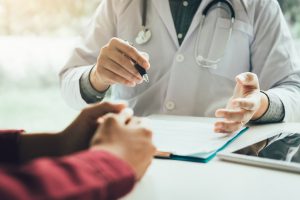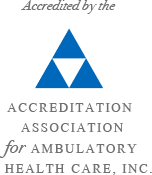When to Determine You Need a Liver Biopsy
 A healthy liver is necessary for good health. The liver is part of your digestive system and helps to detoxify your body, synthesizes proteins, and it also produces chemicals that help digest food. If you or your doctor suspect you are having liver problems, a liver biopsy may be the most effective and easiest way to detect liver disease.
A healthy liver is necessary for good health. The liver is part of your digestive system and helps to detoxify your body, synthesizes proteins, and it also produces chemicals that help digest food. If you or your doctor suspect you are having liver problems, a liver biopsy may be the most effective and easiest way to detect liver disease.
What is a Liver Biopsy?
A liver biopsy is a medical procedure where a small bit of liver tissue is taken so that tests can be done using the sample.
Why Would You Need a Liver Biopsy?
Your doctor may recommend that you undergo a liver biopsy under one of the following circumstances:
- Any abnormalities detected from blood or medical diagnostic imaging tests that indicate you may have a liver problem
- To see the seriousness of any existing liver disease
- To examine yellowing of the skin (jaundice)
- To examine the enlargement of the liver
- To determine the classification and stage of the disease hepatitis
The information your doctor receives from the liver biopsy helps in guiding future treatment decisions.
Symptoms That Indicate You May Require a Liver Biopsy
If you are experiencing any of the following symptoms of a possible liver disorder, your doctor may recommend a liver biopsy:
- Yellowed skin and/or eyes
- Persistent itchy skin
- Abdominal pain and swelling
- Nausea
- Tend to bruise easily
- Chronic tiredness
- Dark urine color
- Loss of appetite
- Pale or bloody or tar-colored stool
How is a Liver Biopsy Done?
A needle liver biopsy also called a percutaneous liver biopsy, is done in-office on an outpatient basis. On the day of the procedure, you'll first be given a blood test to make sure your blood clots properly. For some people, an ultrasound test is performed to determine the best area to insert the needle for the biopsy.
The liver biopsy procedure itself is quick, lasting only several seconds. The area of the needle insertion is numbed using local anesthesia. Your doctor inserts a needle and a small piece of liver tissue is removed. The tissue then goes to the lab for examination, so the cause of any liver problems can be confirmed. The entire procedure takes about 15 to 20 minutes.
What is the Recovery Process?
After the procedure, you’ll rest comfortably in an office recovery room for a few hours. The medical staff monitors your vital signs, such as heart rate and blood pressure.
Your doctor will give you instructions on what to do at home. Typically, you'll be asked not to exert yourself or work for a day or two. After a few days, you should be able to return to your normal activities.
Once your doctor gets the biopsy findings, you’ll be contacted about the results and the best treatment options for any liver problems that may have been detected.
If you suspect you have liver dysfunction and may need a liver biopsy, it’s important to seek medical attention. Contact Gramercy Park Digestive Disease Center. Our doctors can determine if you need a liver biopsy to be done and be the best course of treatment.


